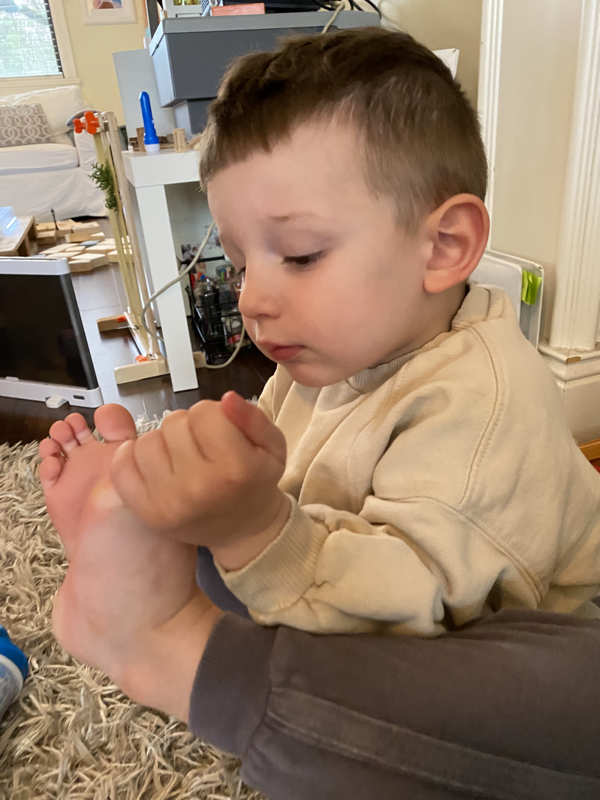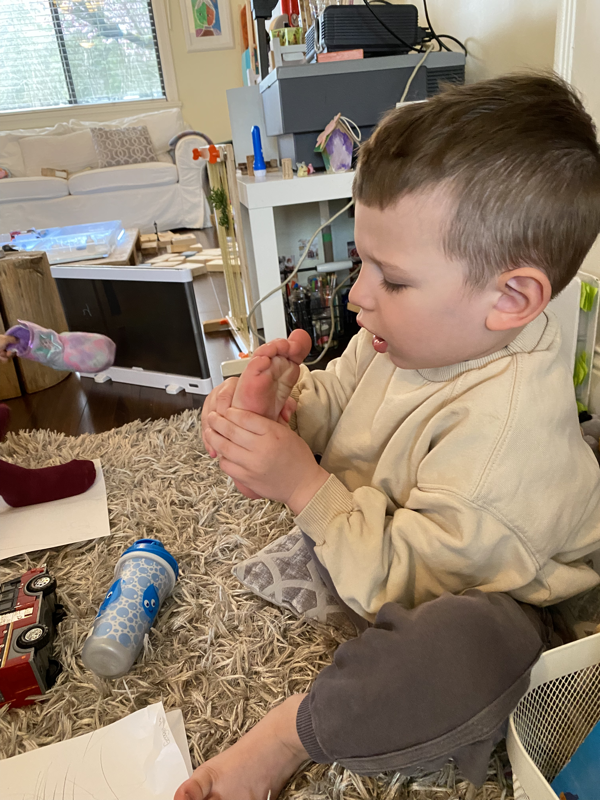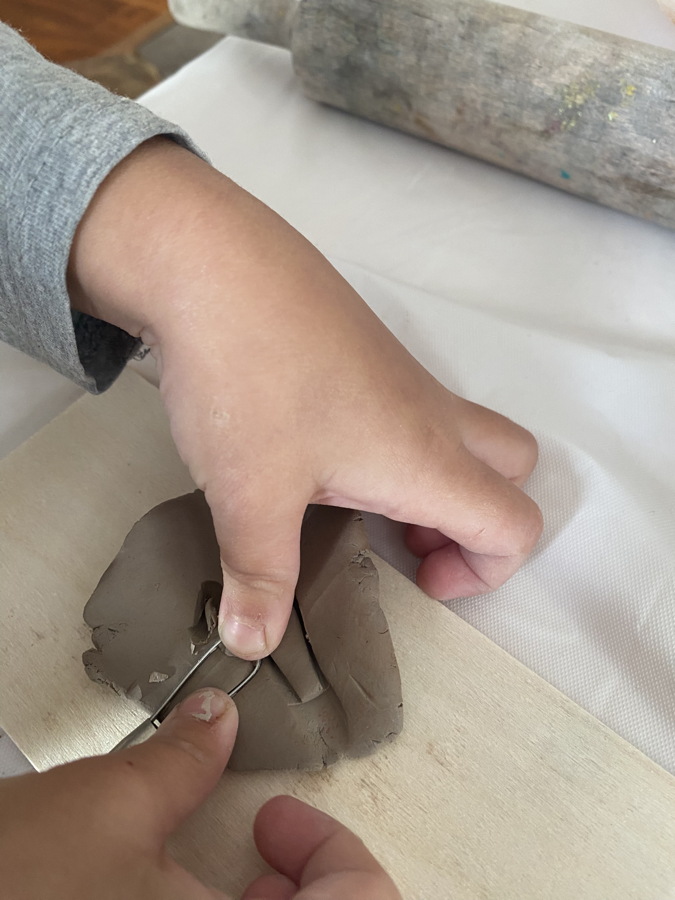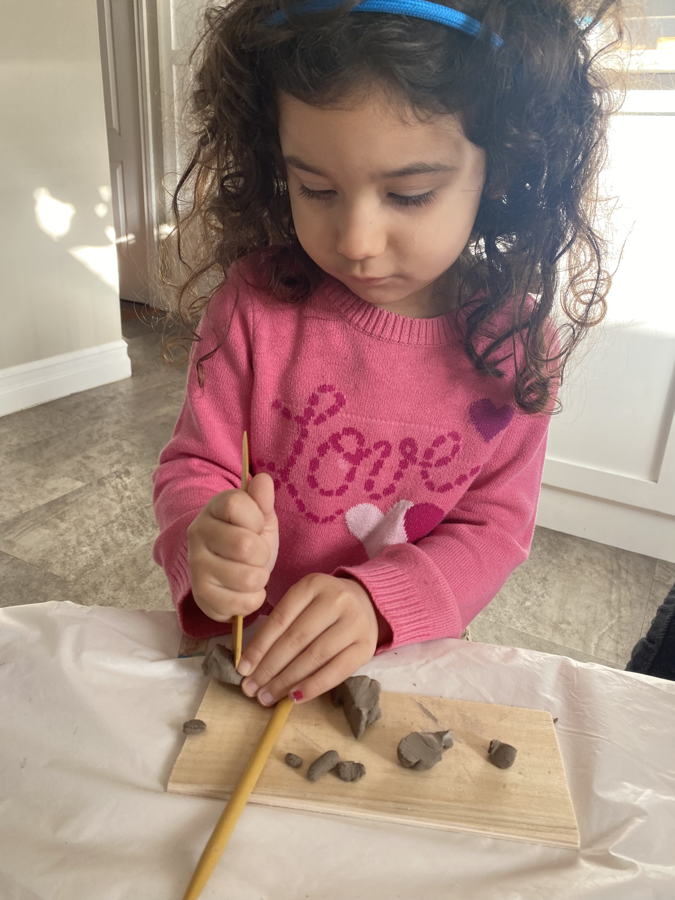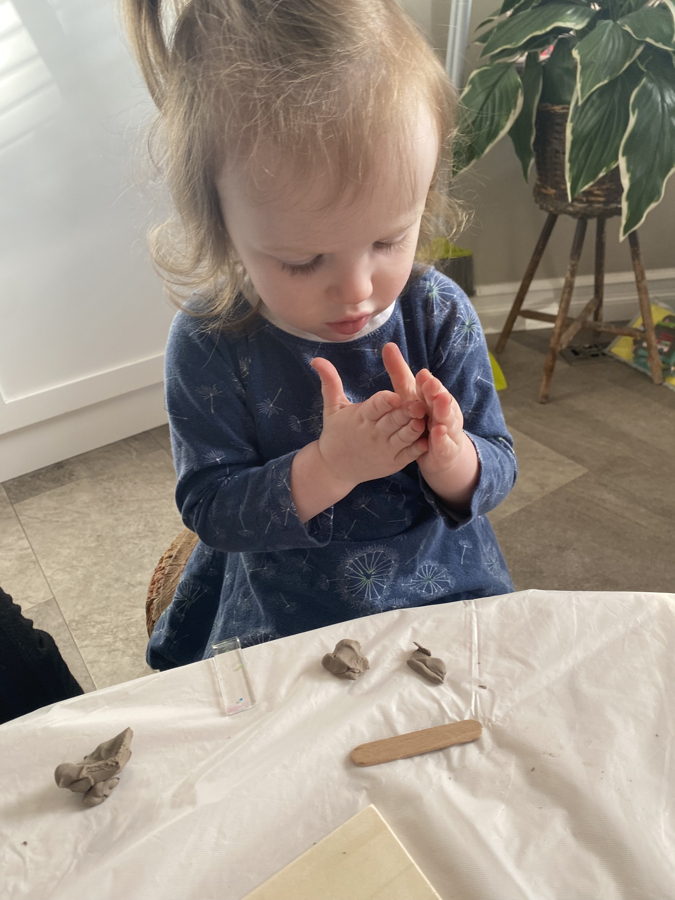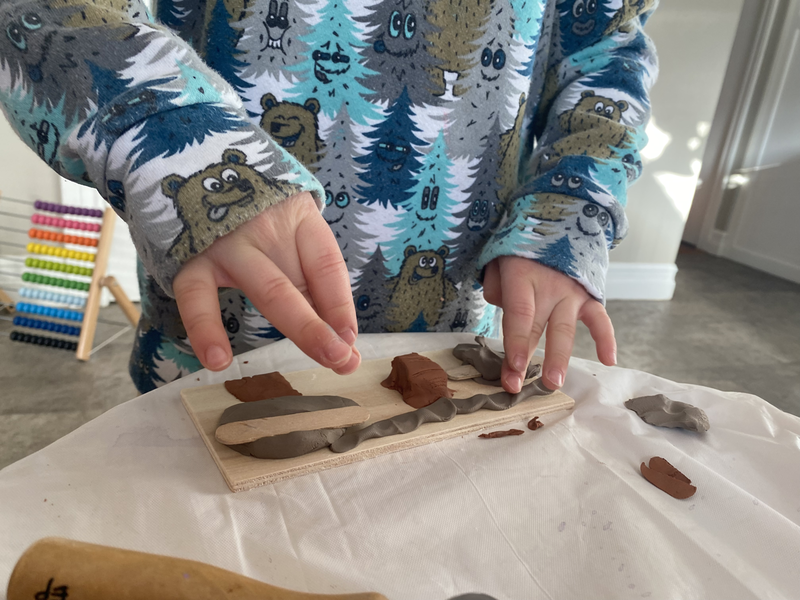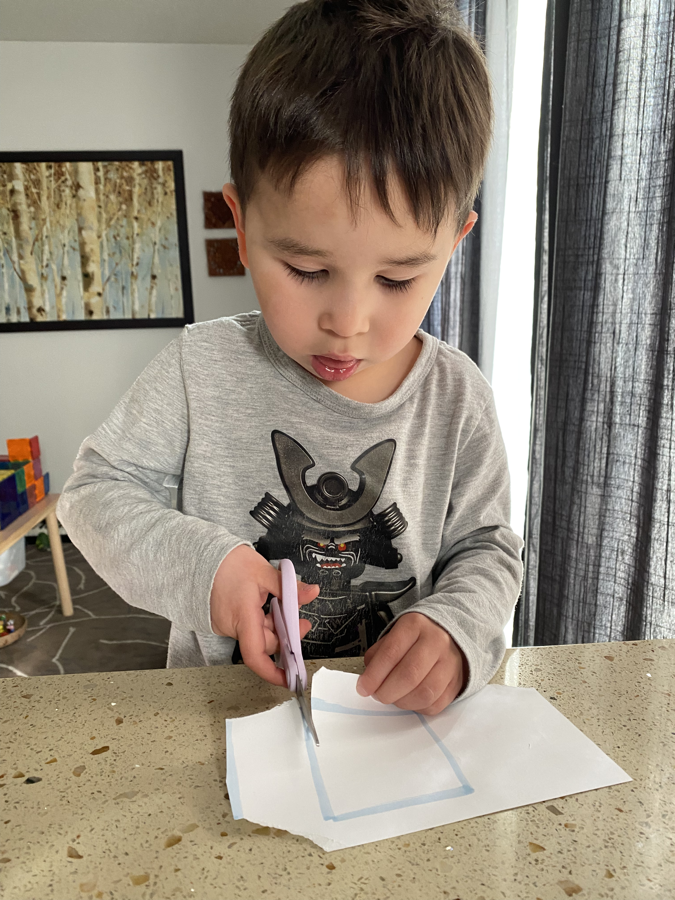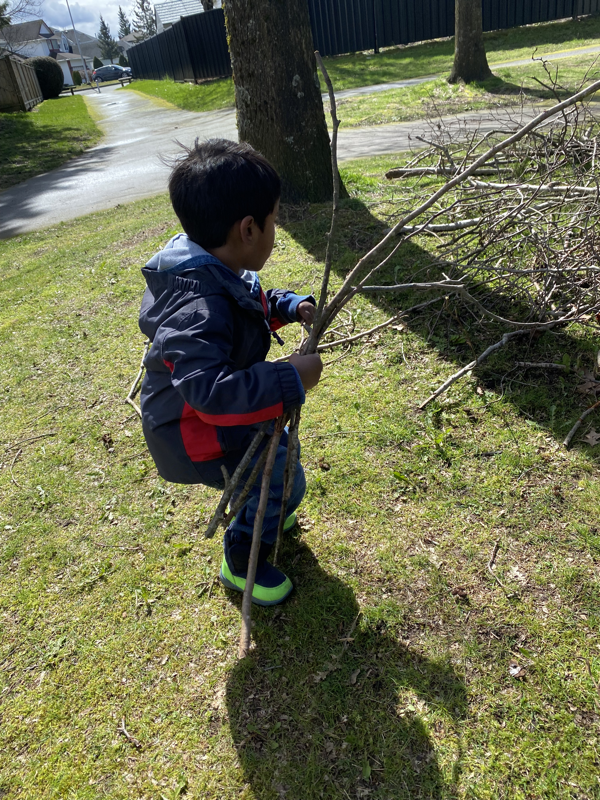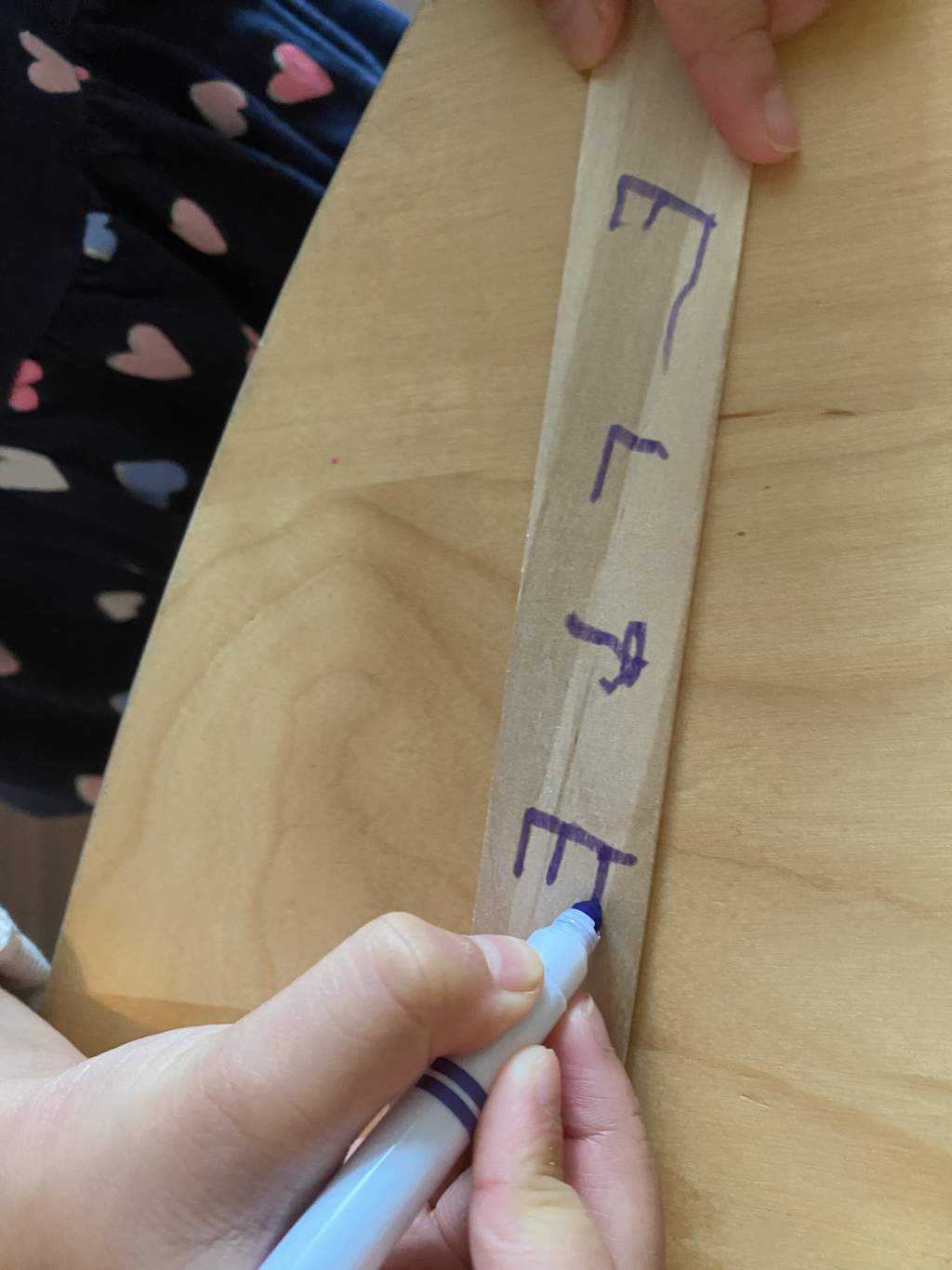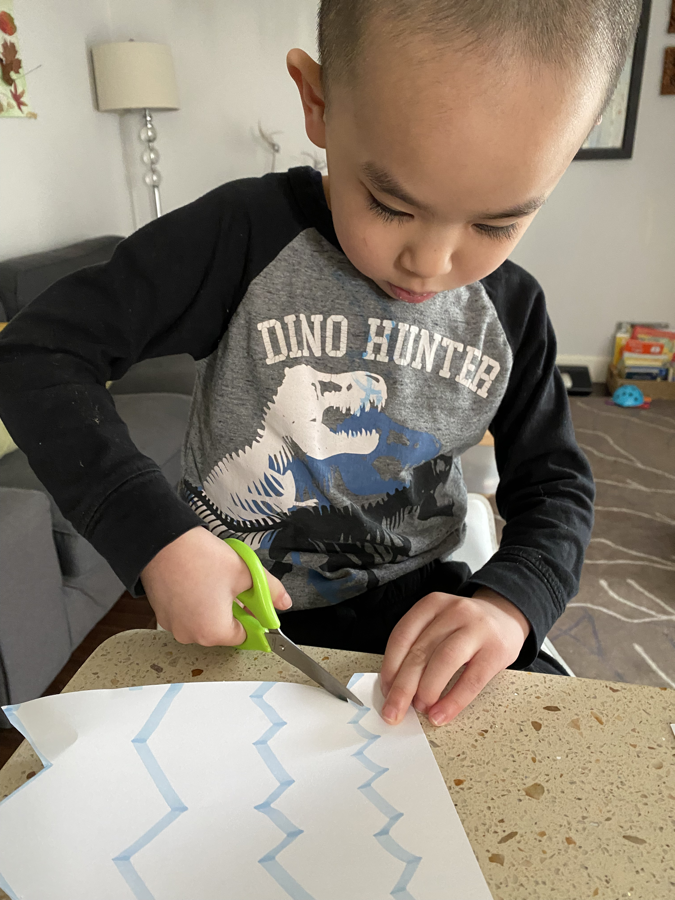|
Malaguzzi emphasized that "it was not so much that we need to think of the child who develops himself but rather of a child who develops himself interacting and developing with others" (Rankin 2004, 82). As such, at the core of the Reggio Emilia philosophy is its emphasis on building and sustaining relationships. Noticing our own feet closely, in particular to our own toes, enables us to identify the similarities and differences between our own and the birds' footprints. Throughout a shared conversational investigation, Elie points out a conclusive finding. What children learn does not follow as an automatic result from what is taught, rather, it is in large part due to the children's own doing, as a consequence of their own activities and our resources. - Loris Malaguzzi, The Hundred Languages of Children Printing our footprints on kinetic sand offers us more and more viewpoints. Through this experience with our senses we allow ourselves to firsthand investigate the world around us. Music has this wonderful ability to mean multiple things. It can be an affirmation or experiences. For us, some instrumental music or sound invites comparisons to drama or narrative. We are keen to learn "music which tells a story". 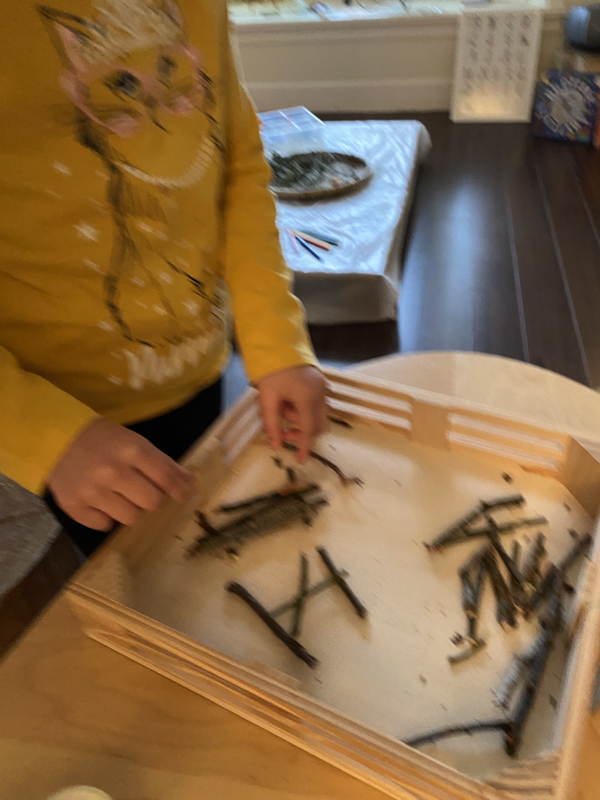 Children keep on extending their current interests through many ways. One of them is building a bird house using wooden blocks. Brooks takes a rectangular block, fixes it as a slide and says, "The bird is going up and down, up and down". Abigail notices and shares her thoughts, "Bird is going to fly over it". Abigail sets a little lamp at the corner and adds, "The bird needs the light to find his Mom. The bird holds the light and searches for his Mom". "It looks like flying" - Luna. Provocations come in many ways to stir or disturb our current thinking. They are intended to provoke us to further wonder, question, think, or feel. As provocateurs, teachers as in a position not to make learning "smooth or easy for children, but rather to stimulate it" by making it "more complex, involving and arousing" (Edwards, Forman & Gandini, 1998, p.184). With the provoking questions such as -
Emelia wonders, "Do birds have feelings?" Brooks: "Happy". Luna: "Angry". Elie: "Angry or upset and happy", Isha associates birds have similar feelings like us, "Happy and sad because they are hungry". Arjun: "Black" (possibly feeling about encountering anything in relation to darkness). George: "Become tired and sleepy". Our learning stories of compassions, feelings, respect, mutual trust, and many more things is going to be part of our upcoming Family Night in June 2022. As much as we would like the presence of families and educators to be gathering together over cups of coffee & tea, Children & Friends propose two choices of dates - Friday, June 10 or Tuesday, June 14 from 05:30 p.m. to 06:30 p.m. Please revert to us by April 30 for your choice of date. Thank you!
Kindest, Children & Friends.
0 Comments
Leave a Reply. |
No part of this publication may be reproduced, distributed, or transmitted in any form or by any means, including photocopying, recording or any other electronic or mechanical methods, without the prior written permission of the publisher.
Archives
July 2024
|
